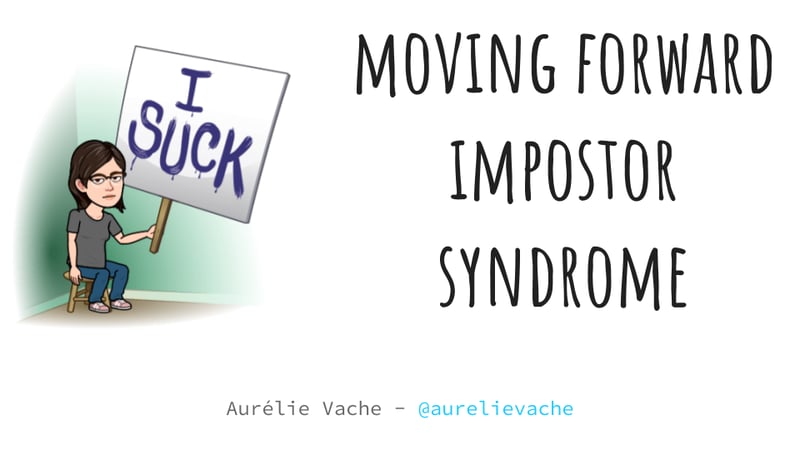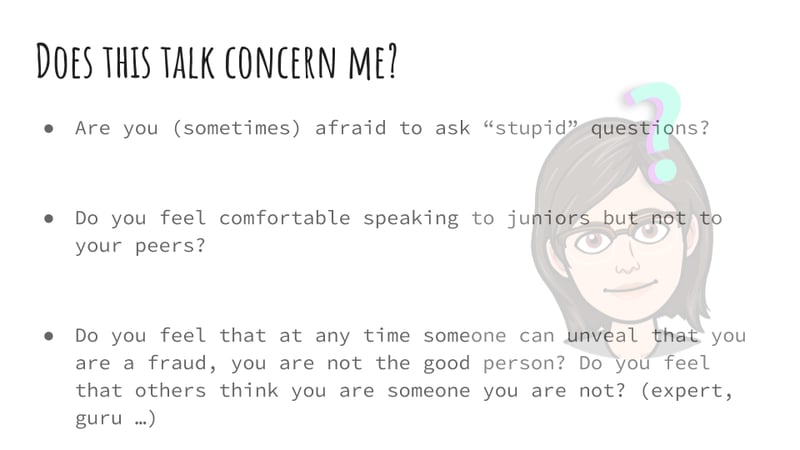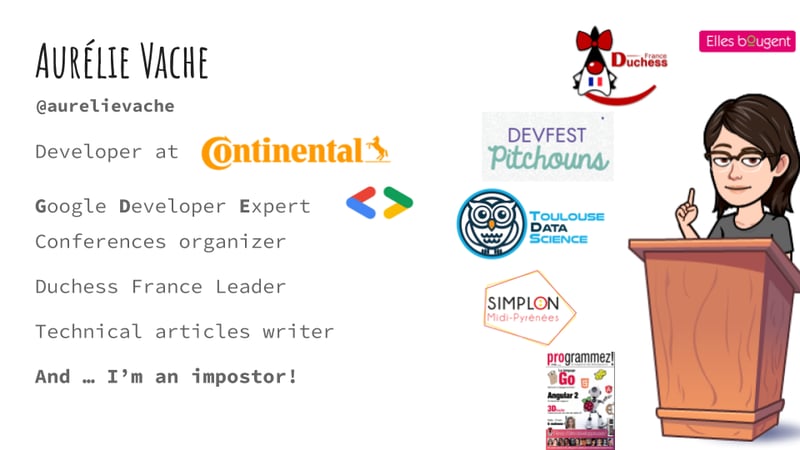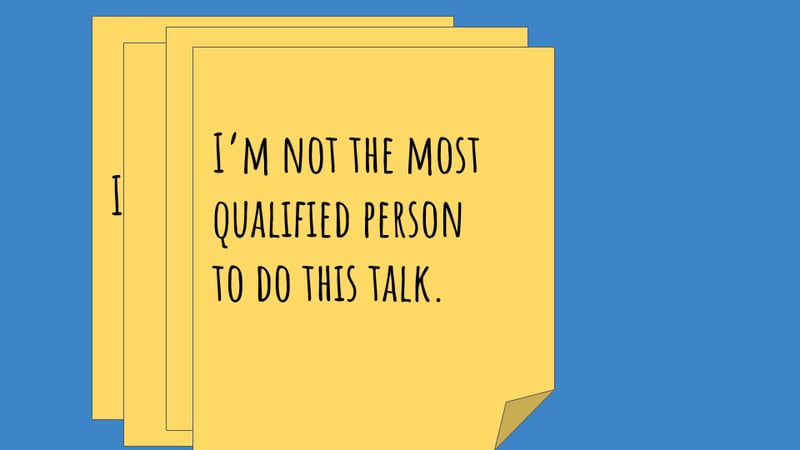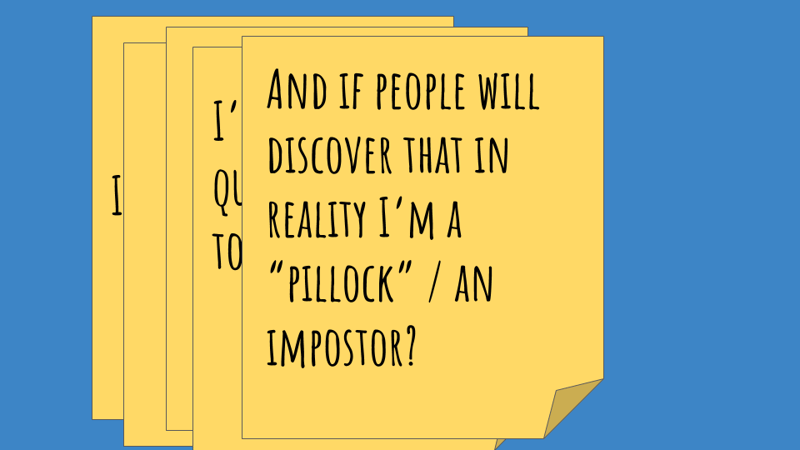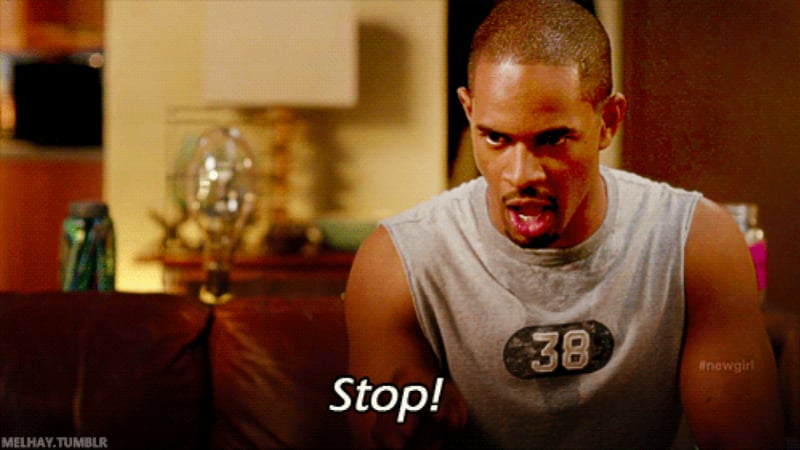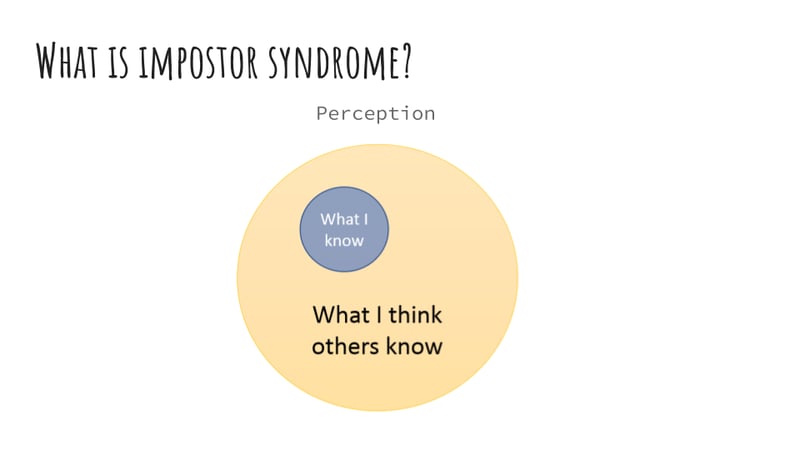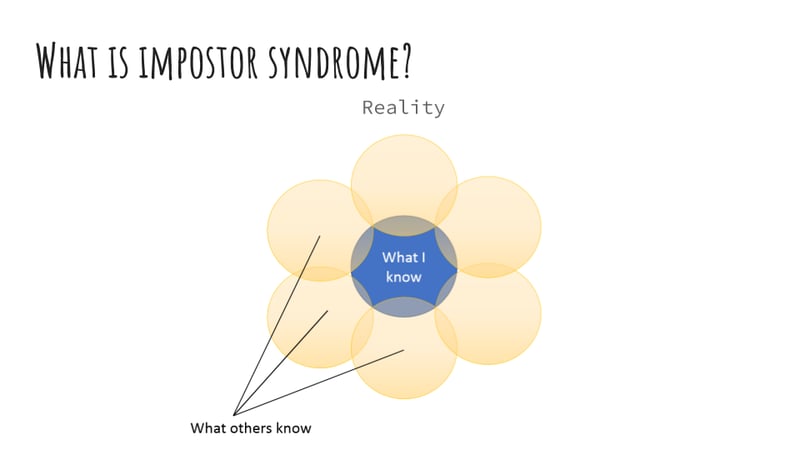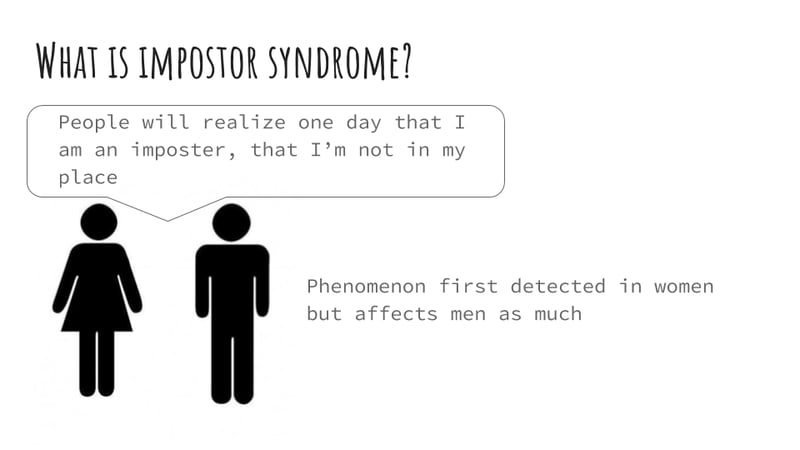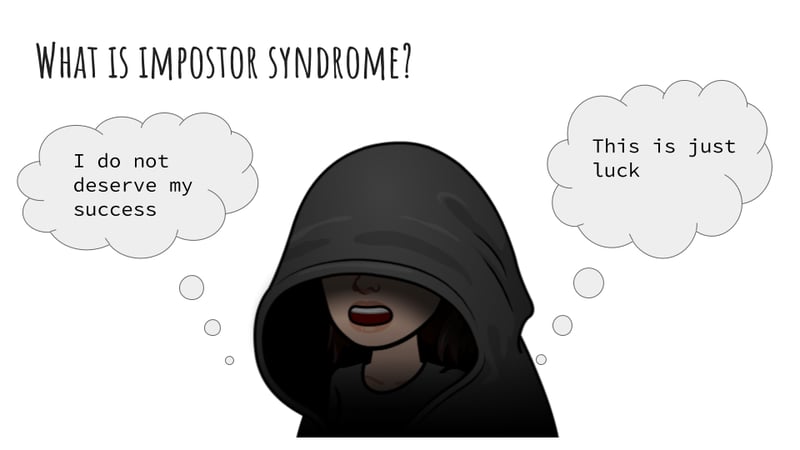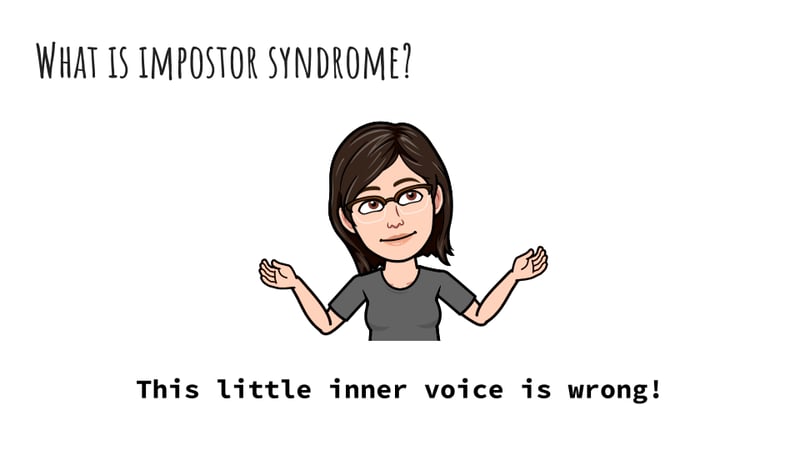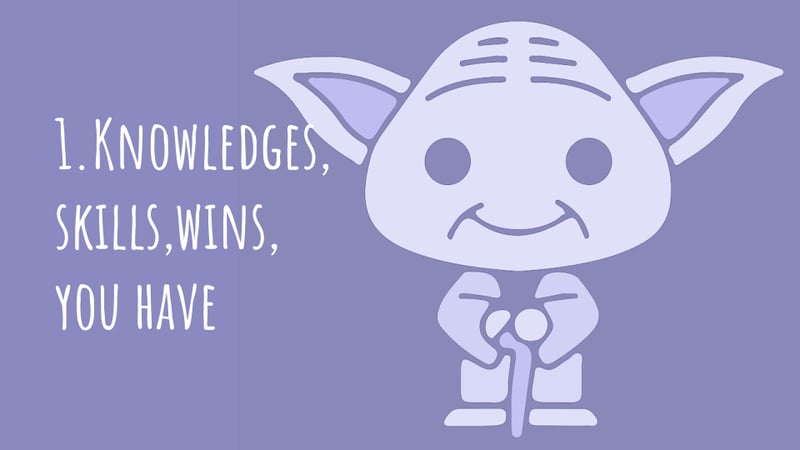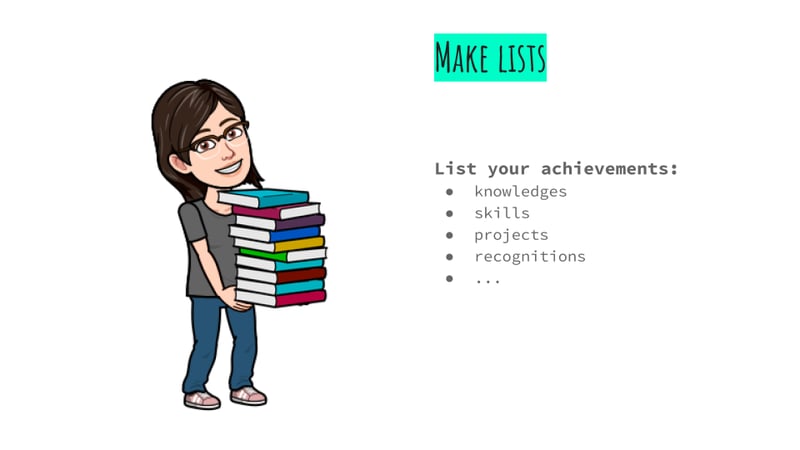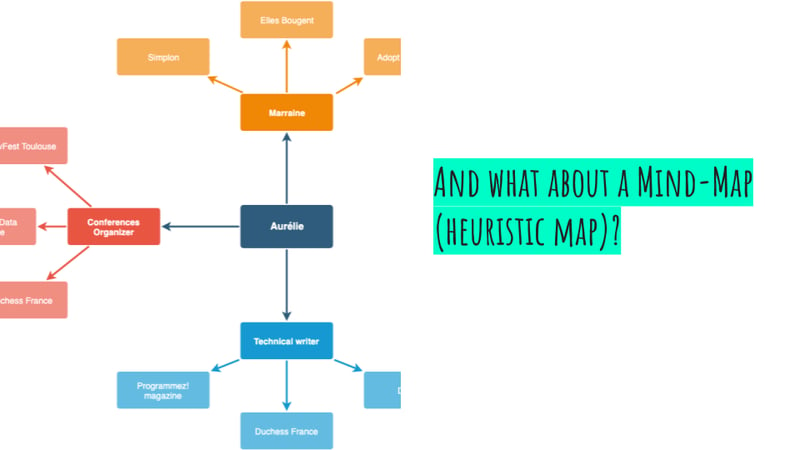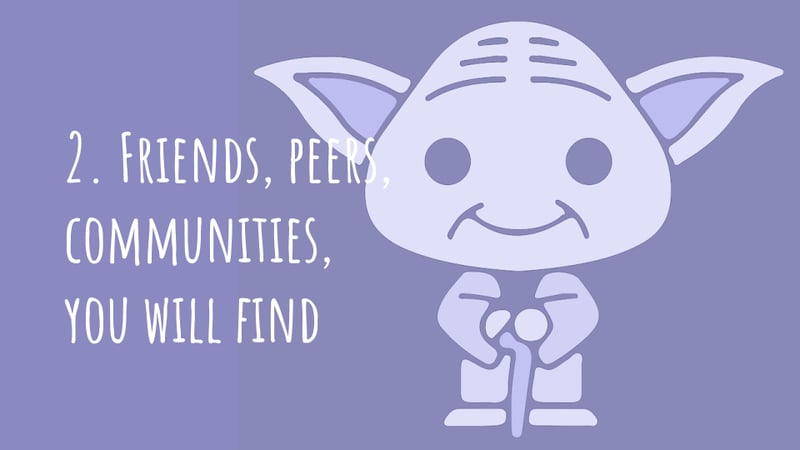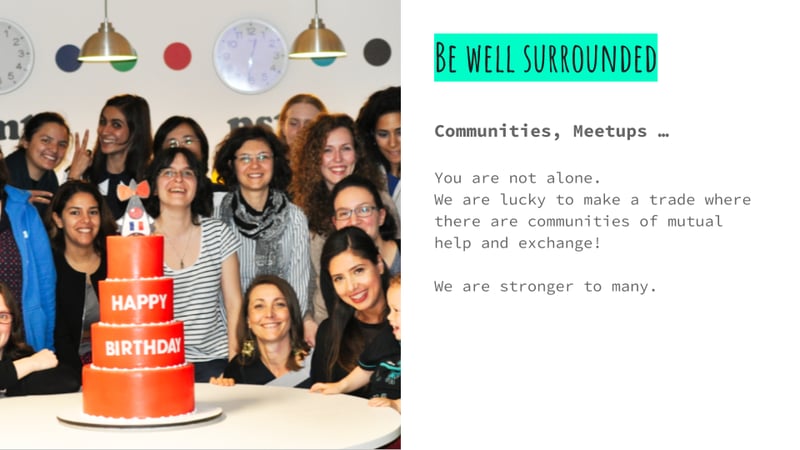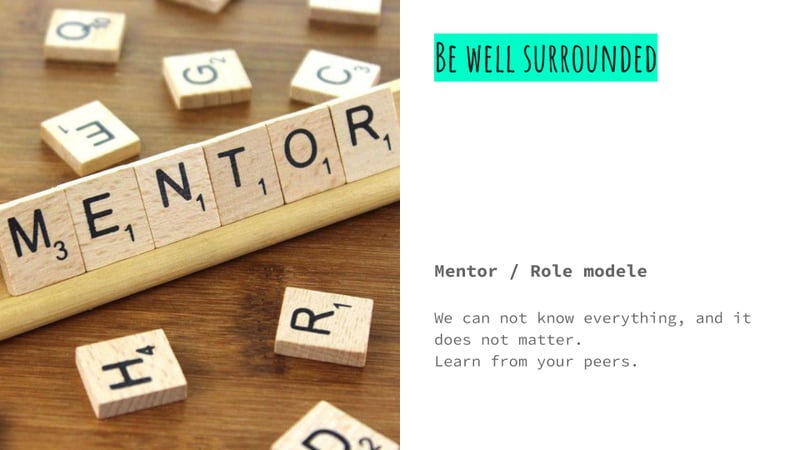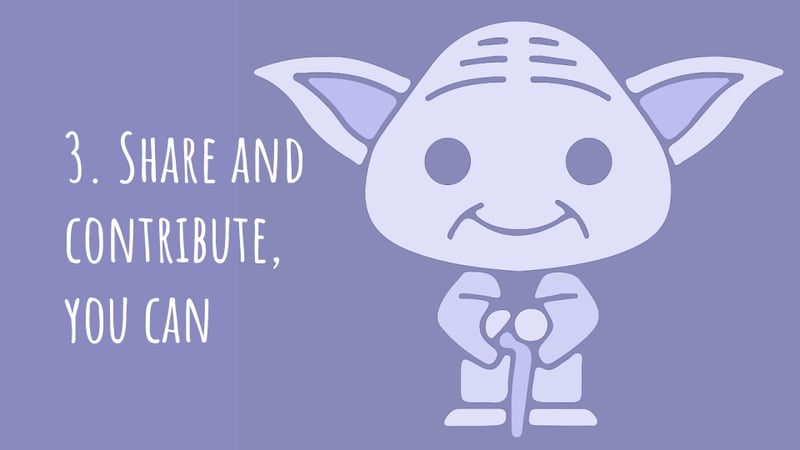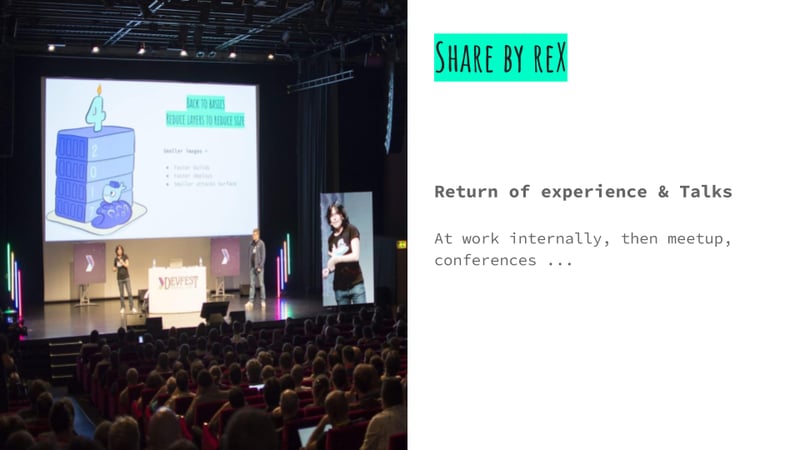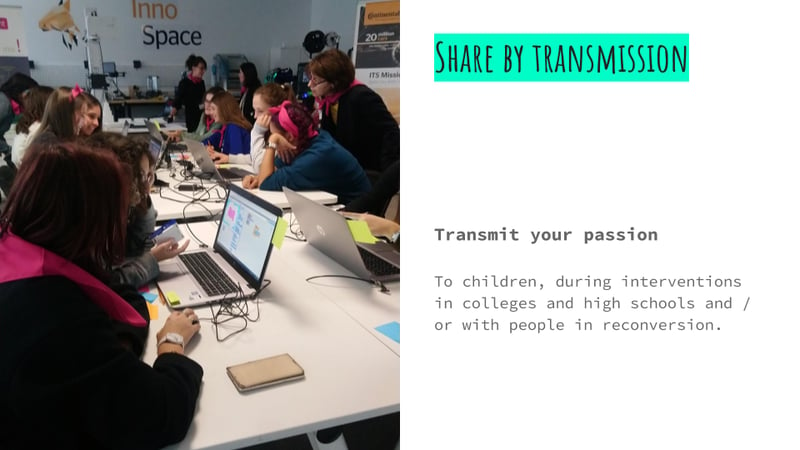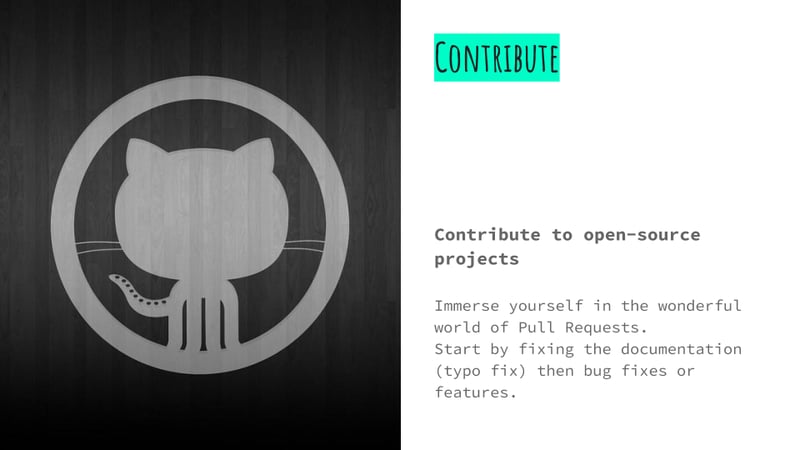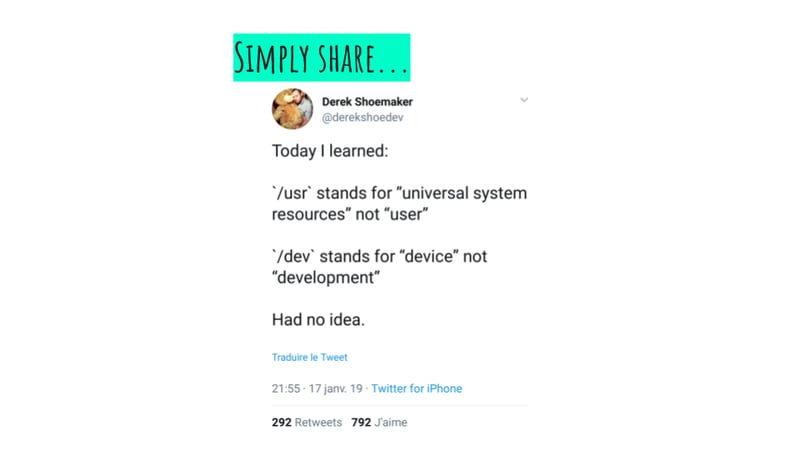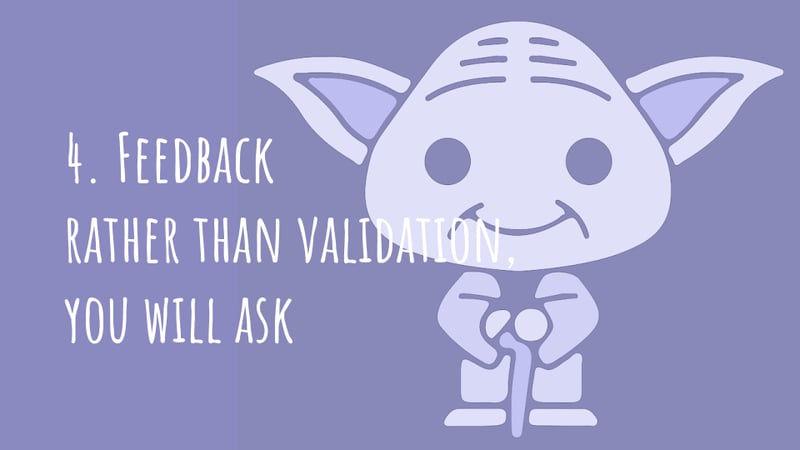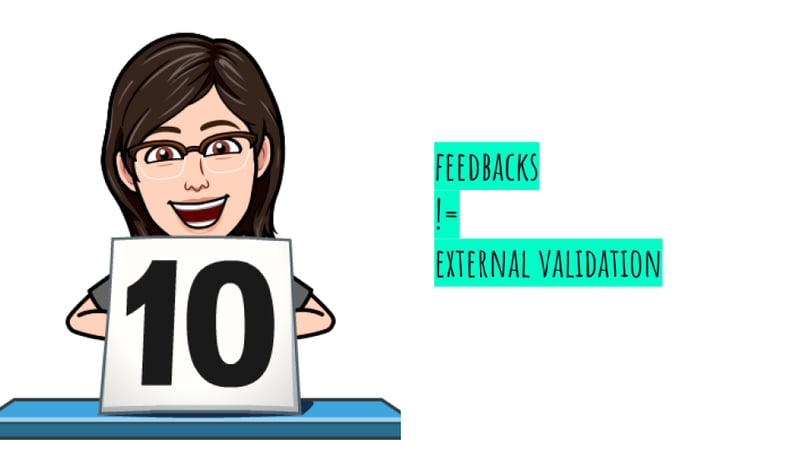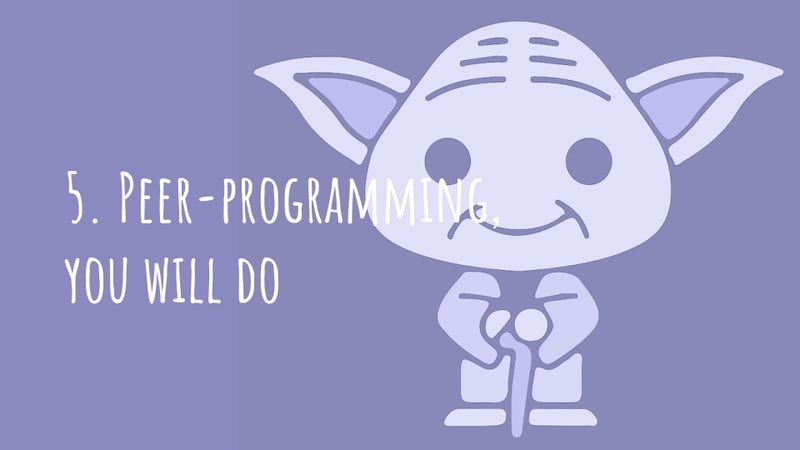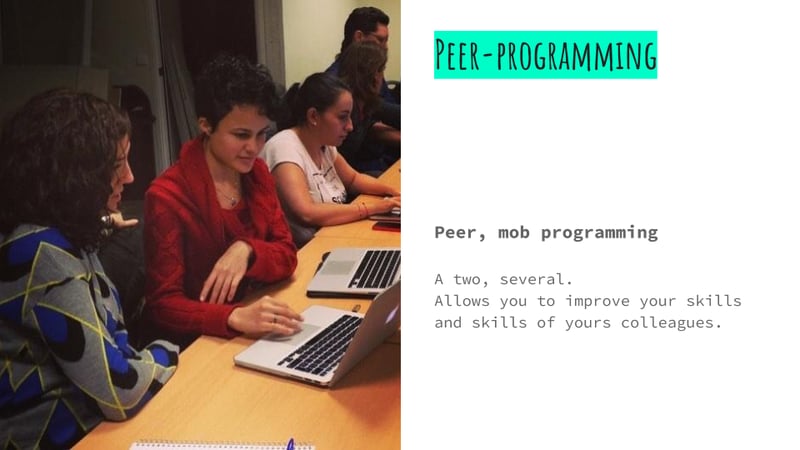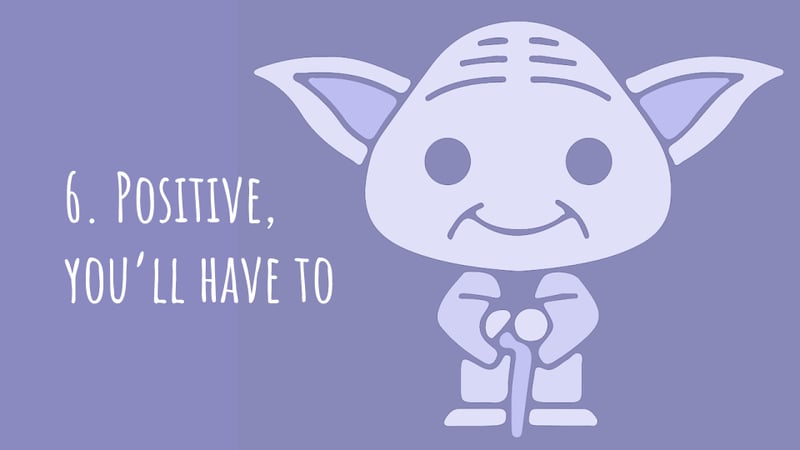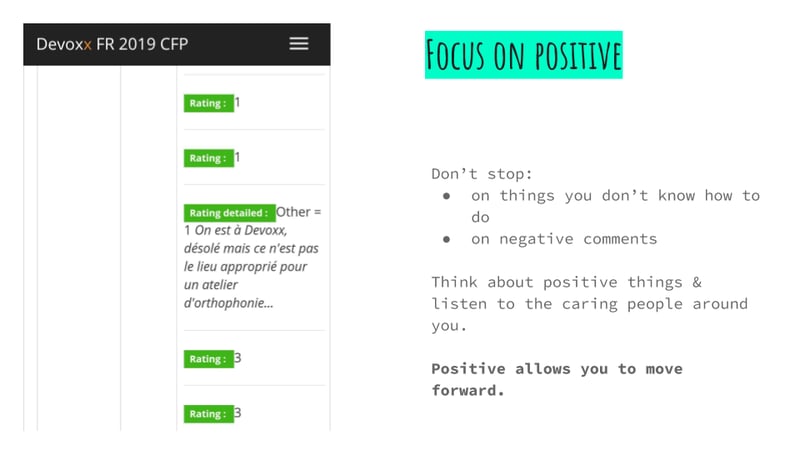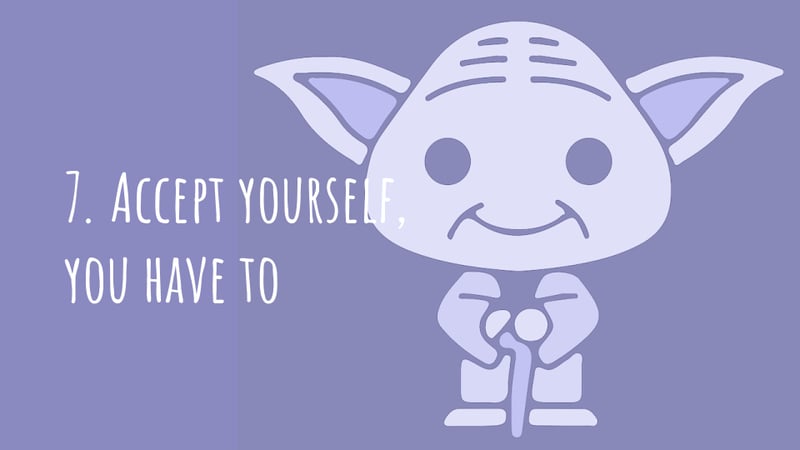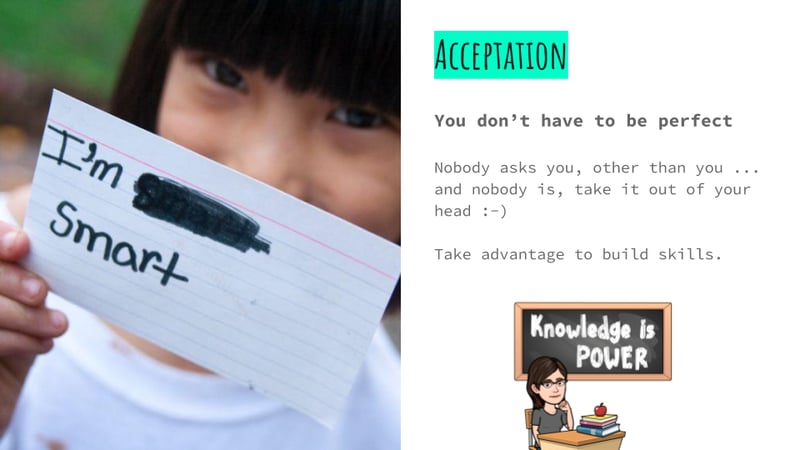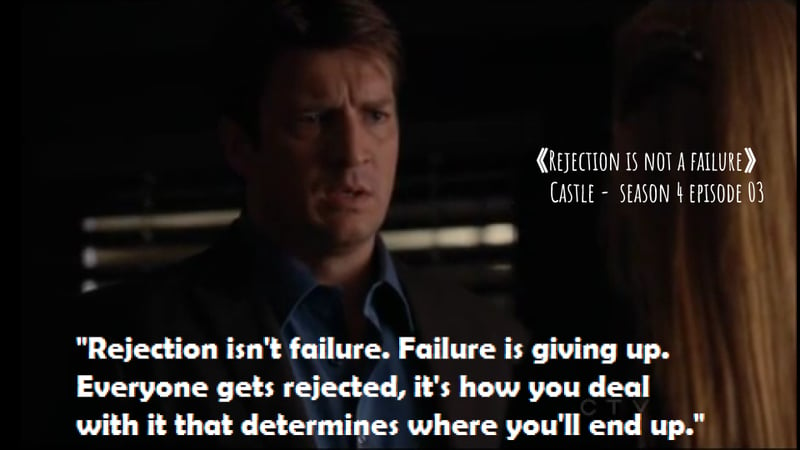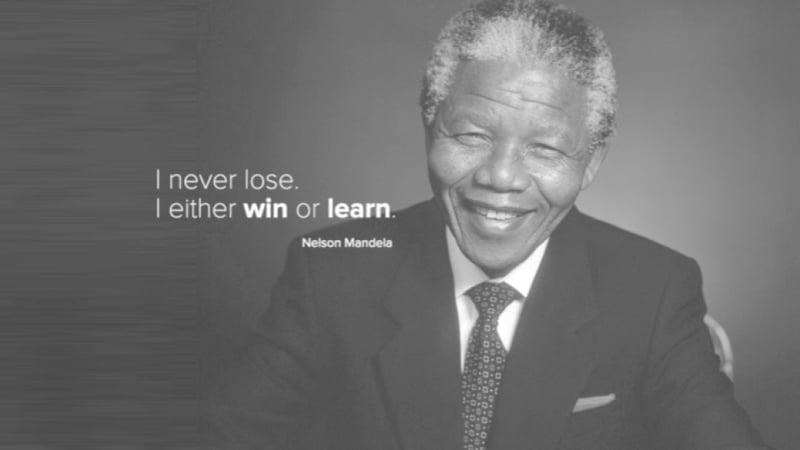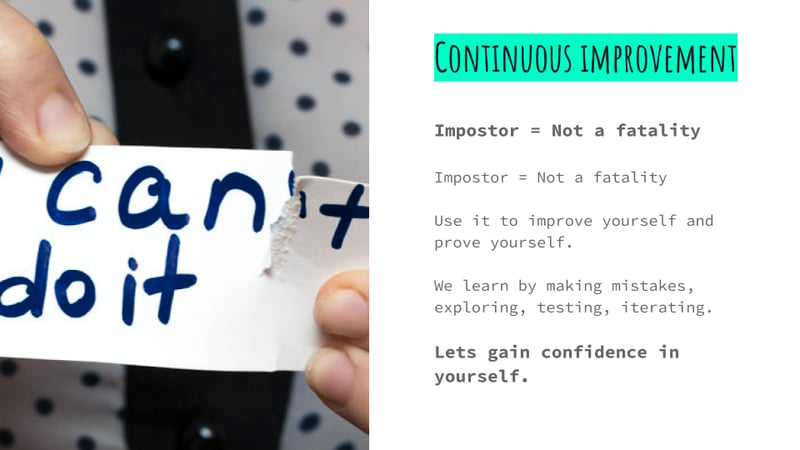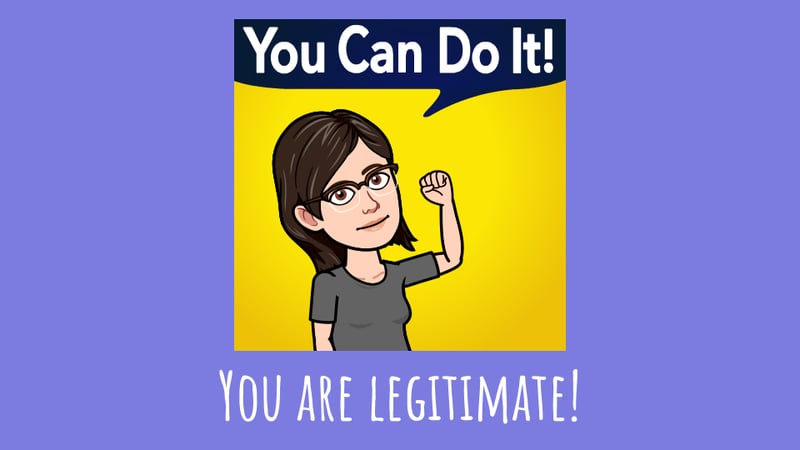Since several years I've got an impostor syndrome. Years after years, I learned how to live with this inner voice and I've done a talk about it.
This article is a transcript of the eponymous talk I gave to Riviera Dev in Nice (France) on May 16, 2019 and at VoxxedDays Luxembourg on June 22, 2019.
The talk was recorded at Luxembourg, so you can watch it on Youtube, in french.
Slides are also available online: bit.ly/syndrome-imposteur-kezako.
The principle of this transcript is simple: I first put the slide and then below the associated text / speech.
Are you ready? Let’s go!
Hello, before starting, who has ever heard of the impostor syndrome? (raise your hand, do not be shy ^^)
I will ask you three questions, raise your hand if you feel concerned, if the questions affect you:
Are you (sometimes) afraid to ask “stupid” questions?
Do you feel comfortable speaking to juniors but not to your peers?
Do you feel that at any time someone can unveal that you are a fraud, you are not the good person? Do you feel that others think you are someone you are not? (expert, guru, ninja, rockstar, diva …)
My name is Aurélie Vache, I am a developer for more than 14 years, I am a conference organizer, invested in communities of women in tech, mentor, I write some technical articles … and I am an impostor!
I’m here in front of you but … I do not know anything about it.
I sucks!
I don't feel legitimate.
I am not the most qualified person to do this talk.
And I wonder if people were discovering that in reality I am a “pillock” / an impostor.
I do not think I’m the only one thinking that and … it’s time to stop thinking about this stuff! 🙂
Let’s start with the beginning.
What is the impostor syndrome?
It is above all a story of perception and comparison.
“I think that compared to others, I do not know much”.
While the reality is different!
“I know a lot of things that others do not know, and vice versa”.
This phenomenon was first detected in women and affects just as much men and nearly 3% of leaders. It particularly affects developers and people working in a technical job in IT.
It manifests itself in the form of a small voice, which belittles us.
Some people are convinced that they do not deserve their success, despite the efforts they make to succeed. They often convince themselves that their success is not related to their work, their personal fulfillment, but simply to the luck or the work of others.
In fact, they live permanently with a feeling of deceit and are constantly afraid that someone will unmask them from one day to another.
You know, this inner voice that tells you maybe you’re not in your place, you’re not as good as others, you have nothing to teach others …
This little voice is wrong! 😉
We will see some tips and tricks to fight this syndrome.
Rule number 1: Knowledge, skills, wins, you have.
We are very good, as a human, to self-scourge ourselves, but much less to find qualities.
You can start by listing all the things accomplished, the knowledge and skills learned so far. Think back to the days when you had trouble debugging a problem and you have managed to find the solution.
To put them black on white, why not make a mind map?
A mental map is like a list but it makes both parts of your brain work. Convenient to make decisions, and in our case to know where we are.
There are no small victories. Our mistakes are there to allow us to be better and we learn through them.
Rule number 2: friends, peers, communities, you will find.
Surround yourself with other developers, be part of an association, a community where you can exchange and communicate.
Personally, being a “duchess” (part of Duchess France - women in tech association) has allowed me to feel surrounded and supported by other processors. It allowed me to push back the limits that I had set myself and to achieve things that I never imagined.
We are stronger when we are not alone.
We can not know everything, and it does not matter. Learn from your peers, from a mentor, a role model.
Rule number 3: share and contribute, you can.
Write articles, cheat sheets, in your personal blog and then that of your company, a specialized site and a magazine for example.
This will allow you to deepen your knowledge and you will find that you know more than what you think.
Speak at a conference / Give a talk.
You will first be able to present a feedback or technology within your company, then during meetups and then at conferences.
You can go step by step to get started.
You can transmit your passion, your feedbacks:
To children during coding taste for example,
By making interventions in colleges, high schools,
To people in redevelopment, coding cocktail or training organizations.
These meetings are always very enriching (and for people and for you).
Contribute to open source projects, on Github for example.
You can start contributing by going step by step: starting with correcting documentation, spelling mistakes, bug fixes, and adding new features.
Or, just tweet what you just learned even if you think everyone knew it before you 😉.
Rule number 4: feedback, rather than validation, you will ask.
Ask for feedback, but avoid asking for external validation - there is a difference.
Give also, on topics you feel confident, at first.
Rule number 5: peer-programming, you will do.
With two persons, several.
It allows you to increase your skills and skills to your colleagues. Cela permet de monter en compétence et de faire monter en compétences vos collègues. For example, work on developing a feature with a colleague. You will learn from your colleague and your colleague will learn from you as well.
Rule number 6: Positive, you'll have to
Don't stop:
on things you don't know how to do
on negative comments
Think about positive things and listen to the caring people around you.
Positive allows you to move forward.
Rule number 7: Accept yourself, you have to.
An important subject!
You can not be a master in containers, Java, Rust, Go, JavaScript, garbage collector, machine learning, functional programming, serverless, infra, CI/CD … nobody can! 😅
You do not have to be perfect and nobody is.
Do you find yourself void in a particular skill? Cool, perfect, read on the subject, deepen it, invest a little time and the little voice, which tells you that you are bad, will gradually leave your head ;-)
You submitted a talk and you were not accepted?
You did not have the job you hope for?
It does not matter. The refusal is not a failure. We must accept it ;-).
A few years ago I wanted to do a Master, it happens in two stages. I was taken on record for the first step, cool. Then I move for the oral in Toulouse (France), I enter the room, I see a jury composed of 8 people in front of me. I do not hide that I stammered/stuttered a lot. At one point, one of the jury cut me off and said, “You don’t know how to talk”. In the end I was not taken because of stuttering.
At first, this refusal hurt me a lot, but that did not stop me from doing a job I love, without the precious master degree.
And in another register, everyone makes mistakes, that too must be accepted.
And I will add that those who do not make mistakes are those who do nothing.
And there is a quote from Nelson Mandela that I particularly like: “I never lose, either I win or I learn”.
And it’s true, we learn from our experiences.
What this syndrome brings you is …
above all, humility!
This is a great quality for a developer (and for a person in general).
It does not matter if you do not know how to answer a question but it’s important to say it (because other people are in the same situation as you and do not dare to do it).
The impostor syndrome is not inevitable, use it to improve yourself and prove to yourself that you insure.
You do not disappoint anyone, neither the others, nor you.
The impostor syndrome, whatever one may say, is a good thing. It can push you to surpass yourself, make technology watch to improve your knowledge, share your feedback … and in the end, suffering from this syndrome reflects the fact that you are great people.
Remember, stop listening to the little voice, you are LE-GI-TIMATE !
Thank you for allowing me to speak on this subject here, thank you also for listening to me :-).

